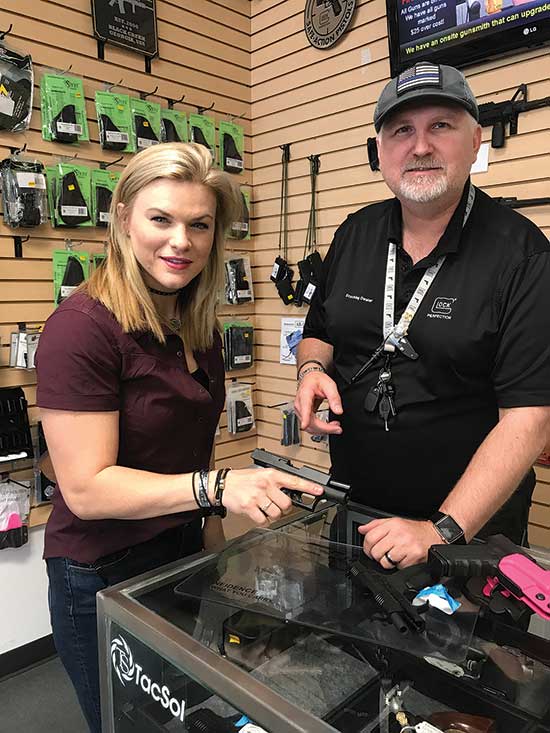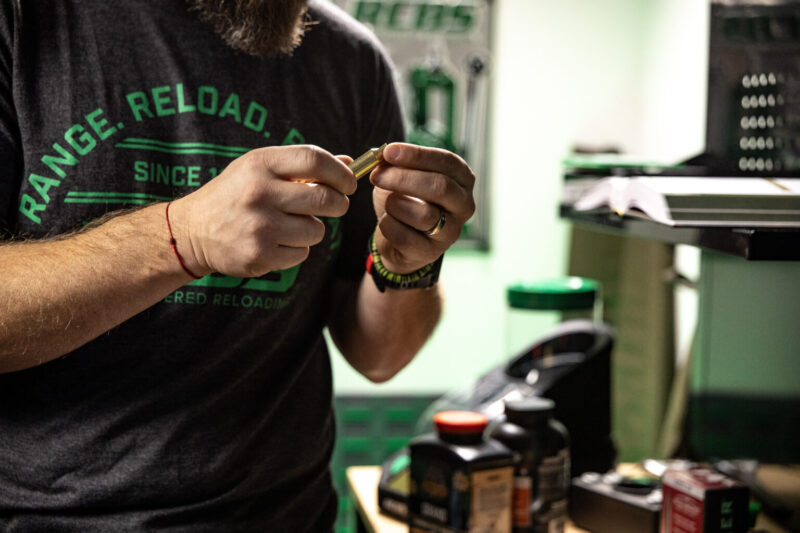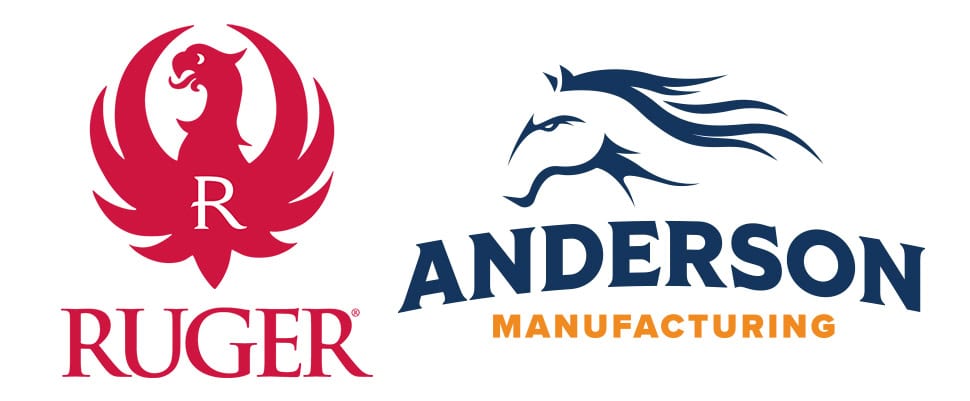Training: Selling More Than A Product
In a time when big-box and online merchants continue to siphon business from local, independent stores in all industries there’s one thing for you, the gun dealer, to keep in mind: What you sell is not just product, but knowledge too. Perhaps the strongest thing going for the independent gun shop is the knowledge the owner and staff possess and the advice they dispense. Yes, for many of your customers, what they’re really buying is that knowledge and advice.
And the question comes, “Why stop there?”
Many gun shops have found it’s more than just good customer service to go beyond answering questions one at a time, and to offer structured classes. The most common are basic firearms safety courses and, in some states, legally mandated courses for concealed carry permits — though some stores have gone considerably beyond.
Obviously, providing such classes is a service in and of itself to the community. But the store has to keep the lights on and the employees paid to continue this public service, so let’s look at the profit elements.
Profit Potential
The most obvious profit center from training is the tuition from students. If they bring their own guns and gear, only the class fee is incurred. At the basic level, however, there will be students who haven’t yet made those purchases, so you can add in the rental of store-provided firearms and the cost of store-provided ammunition. Some stores provide ear/eye protection at no charge, while others choose to rent this gear for an additional modest fee.
Of significant importance is also the matter of additional sales. The customer to whom you’ve rented a firearm is probably going to buy one of his or her own. Every minute they spend with your staff in a positive learning experience is more insurance they’ll be making the purchase at your store.
Another factor is the customer will often come in with their own unsuitable gun and recognize its unsuitability in the course of training. The gun they inherited from their late grandpa just doesn’t fit their hands, or isn’t accomplished for the concealed carry they seek. “Hubby” bought “Wifey” the cheapest gun in the pawn shop and together they discover it doesn’t work, but the loaner gun you fortuitously had available for them to get through the rest of the course with does fit their needs just fine. The momentum is in place for them to buy a gun just like the one you let them borrow, and to buy it from … you.
If your class encompassed working from the holster and a student discovered the “Fruit of the Loom” holster he or she bought cheap at the Monster Mart is unsuitable, you are the logical source for the replacement they are now very motivated from their own experience to purchase. The dud reloads Uncle Fred gave them for the course jammed the gun, but the extra factory ammo you brought to the class to sell them in such a circumstance makes their gun run like the proverbial Singer sewing machine. You have just become the logical source for their ammo purchases from that moment in the class into the future.
Trainers: In-House Or Imported?
You, or someone on your staff, can probably teach multiple gun-related and/or self-defense related topics. If not, contact NRA-certified instructors in your area or ask around. When looking to bring in a new trainer, make sure you do your due diligence and vet them properly, as well.
A while back I reported in these pages on Dick Rood’s Hangtown Shooting Range in Placerville, Calif., where training is a regular contributor to the business’s profit stream (“Guns, Archery & Training Create Winning Combo,” June 2019).
“We’re getting very active with training here,” Rood shared. “Josh Slater, our general manager, is very active on CCW renewals and handgun safety training, and is looking at more first-aid training with emphasis on tactical medicine and first responder treatment of life-threatening wounds. It’s going very well right now.”
Every minute they spend with your staff in
a positive learning experience is more insurance they’ll
be making the purchase at your store.
Josh Slater happens to be a Krav Maga practitioner, an accomplished combat shooter and a veteran combat medic with substantial experience treating gunshot wounds. Having a staff member on board and already on salary who can teach such multiple disciplines is a tremendous asset for in-house training.
Ask yourself: If you already have someone on staff with this knowledge and the ability to share it, do you perhaps have a potential profit center going to waste?
It’s also common for gun retailers to work a deal where local instructors train under their auspices. If your own facility doesn’t have a classroom, possible venues include local hotel conference rooms, VFW or American Legion halls, Kiwanis clubs and the like, and even church meeting halls. I’ve seen “civilian” classes taught in fire station and police station training rooms, as well. For live-fire, if you don’t have a range of your own, it’s often possible to rent a shooting bay at a commercial range or gun club, and those facilities may also have convenient classrooms right there on the premises.
Bringing in outside instructors can be of value, and can be profitable — depending on how the given instructor operates. Some will pay you a set fee for hosting a class and collect and keep the tuition themselves, while others may work on a contract basis. Each may have a different approach to sharing profits with the host, so make sure it’s worked out beforehand. Some will offer one or more free slots in the class; this is useful because it brings in training for your in-house instructional staff without having to pay their travel expenses.
Make sure the financial arrangements are worked out solidly beforehand. Whether you do it on a contract or a handshake is of course up to you, but you don’t want to be stuck paying out of your own pocket to make up the instructor’s fee if the class draws too few students, nor have to refund tuition to angry customers if the instructor decides not to teach the class.
The expertise your operation offers is what brings customers to you. Offering and hosting training is simply one more way of sharing your hard-earned knowledge, and of being financially rewarded for disseminating it.





